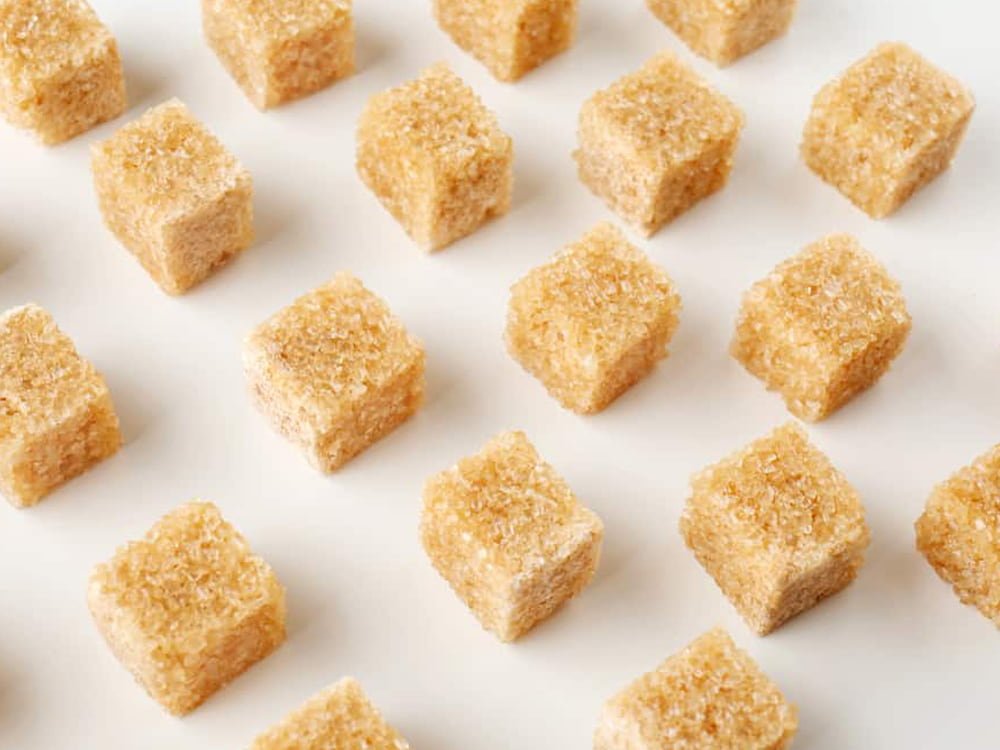This article contains affiliate links.
Cutting a Watermelon is a humongous task, and for novice kitchen stewards this can be quite a challenge. Do you actually know how to cut a watermelon? Learn the basics here.

Watermelon is a delicious summertime go-to treat for just about everyone. Thanks to its sweet, juicy flavor, this fruit is the first to disappear at a picnic, BBQ, or party. Unfortunately, cutting it can be such a pain. Not to worry though, we have tips to help you get it right the first time every time.
The best and easiest way to cut a watermelon is by using a sharp knife to remove the ends, cutting it into two big pieces, peeling off the rind, then chopping them down into smaller more manageable sizes.
If you love watermelon but don’t know how to prepare it, this is the article for you. Keep reading for great tips, tricks, and information regarding America’s favorite fruit.
Best Cutting Method for Watermelon
If you want an easy method for cutting and preparing your juicy watermelon, use the following specifically designed slicers to get the job done quickly and effectively.

| Yueshico Watermelon Peeler and Slicer with Bonus Baller Scoop  | Round Watermelon Slicer |
| This peeler comes with an automatic cutter blade allowing users to push the tool into the watermelon and cubes are mechanically cut out into 1-inch slices. The cutting ruler enables you to create proportionate cubes easily with quick, clean slices. Made of stainless steel, it allows you to serve watermelon effortlessly. If you want to cut watermelon into cubes for a salad, this is the tool for you. Pros • Blades are not non-sharp and have rounded edges making it child-friendly • Automatic cutter blade • Makes perfect cubes easily Cons • Some cuts are a bit uneven • Some users find it difficult to use | Obtain expert results in minutes with this watermelon slicer. Ideal for large to extra-large watermelons, it can cut any ripe melon effortlessly. This slicer can cut watermelon into triangles within seconds. It is portable, comfortable, and lightweight. It is dishwasher safe, and the grip is non-slip. To use, cut both ends of the watermelon before inserting it into the slicer. Once the watermelon has cracked, cutting becomes easier. Put the cutter on the watermelon, then press down. The watermelon should be cut into 12 equal pieces. Pros • Easy to clean • Perfect watermelon wedges • Portable • Ergonomic design Cons • May require strength to push through bigger watermelons |
Chef’n Watermelon Slicer | Melon Baller Scoop Set |
| Watermelons aren’t always the easiest to slice through given their larger size. Additionally, many people like creating designs in them as well, so you need a special peeler that is able to handle this. Watermelons can be prepped in record time using this simple slicer. The slice and scoop handle creates a comfortable grip and is dishwasher safe. Pros • Dices and cubes of watermelon safely • Tongs can be used to pull up cubed slices or to serve • Easy to clean Cons • Plastic too flexible • Slices may not be consistent | For an amazing presentation, this watermelon multi-tool will carve, scoop, and ball your fruit easily. There’s nothing like serving cups of watermelon balls to your friends and family. With this tool, serving fresh cut watermelon fruit bowls on a hot summer day will be a breeze. Check out the video on how to use this peeler. Pros • Cuts fruit into fun shapes • Easily stacks into a space-saving design • Can carve out a presentational watermelon bowl Cons • The handle is thin and not ergonomic • Blades experience wear and tear |
How to Cut a Watermelon
Watermelon can be a little tricky to cut, mainly due to its size. It can get a little wobbly, awkward, and it can simply become frustrating and overwhelming. That’s why we put together this simple step-by-step guide to cutting perfect watermelon pieces or watermelon triangles.
Wash Your Watermelon
Like with any other fruit you plan on cutting up, wash the outer layer, even if you do not plan on eating it, because you do not want to risk any harmful pesticides, chemicals, or debris mixing in with your watermelon. Dry it with a paper towel when you’re done to ensure you can get a good grip on it.
Cut the Ends Off
Using a sharp knife, cut the stem sides off by approximately 1″. This will leave two small flat surfaces that can be used to balance the big fruit. Sit the oblong watermelon on one of the flat surfaces, and proceed to cut the watermelon.
Cut the Watermelon in Half
When you are ready to cut the watermelon, you can do it lengthwise from the previous instruction or you can lay it flat on the counter or cutting board and then cut it in half the fat way, using a sharp chef’s knife, not a serrated knife, creating a large bowl from each side.
Remove the Rind
Now, flip each large bowl over and, using a paring knife or a watermelon peeler, carefully slice away the rind, cutting just deep enough to remove all green and white skin, leaving just the pink flesh. You can save the rind for other recipes.
Cut Into Slices
Now cut the melon into long even slices of watermelon sticks. You can leave them like this, or you can continue cutting them into watermelon cubes if you would prefer. This is a popular way to cut watermelon because it makes the pieces more manageable.
Remove the Seeds
If you didn’t buy a seedless watermelon, don’t worry about removing all of the black seeds. The black seeds in watermelon are edible and are generally found in non-GMO varieties. If you decide to purchase seedless melon, there won’t be any additional cost for buying organic.
Make sure the Watermelon is Cold
Refrigerating the watermelon before slicing will ensure that the flesh takes good form during the slicing process. If you would like to cut a recently store-bought watermelon, just place the melon in the freezer for about 30 minutes before slicing. Nothing like a cold watermelon treat.
Use a Sharp Knife
A dull blade will cause the watermelon to slip around, which could lead to cuts and bruises. A sharp knife should help you avoid these issues.
How to Pick a Watermelon

Every fresh watermelon is the juiciest when it is perfectly ripe. Many people believe the best watermelons are the ones that are nice and green all around. However, this is not the case at all. The best way to find a good watermelon is by looking for the yellow “field spot”, indicating where it had been resting on the ground.
To determine what part was on the ground, look for a very big spot on the watermelon. It is almost like an alert, letting you know when the fruit is ready to be eaten.
A lightened yellow spot is good, but a darky creamy orangish-yellow spot is best.
Another tactic you may have heard of is thumping your watermelon, which may sound a bit strange, but it is extremely helpful for indicating if the produce is ripe enough to eat and juicy enough to enjoy.
A well-ripened watermelon full of juice is going to make a deep hollow sound when you tap on the outer side of the melon indicating it is at its peak.
Lastly, look at its luster. A shiny watermelon (although beautiful) doesn’t mean it’s delicious. You want to look for a dull, almost dusty surface when you are ready to pick.
Watch for Impurities
Many things can happen to produce, from the growing process to the picking, packing, and shipping, and then the stocking on the shelves.
Any bump, drop, or access pressure can cause your watermelon to bruise or break open. You want to make sure there are no cuts, cracks, dents, bruises, or other deformations on the watermelon because all of these things can make them go bad rather quickly.
How to Tell if Your Watermelon is Rotten?
Watermelon is one fruit that won’t keep you guessing whether or not it has gone bad. If your watermelon is rotten, you will smell it, taste it, and easily see it.
How to sport a spoiled watermelon:
- Pungent rotten odor
- Mushy gooey fruit pieces
- A clear slimy coating
- Molded on the rind or the inside fruit
- It is soft, easy to push through the rind
Can You Eat Watermelon Rind?
Although this part of the watermelon isn’t as tasty as the flesh, it does have many health benefits if you decide to skip tossing it in your compost pile. Here are a few reasons why you might want to consider munching on the hardest, less sweet portion of watermelon.
- It may help reduce blood pressure
- It can increase your performance in your workouts
- It is full of fiber (which we all know is fantastic for your health)
- They are full of nutrients like magnesium and potassium
Note: Watermelons are often grown on farms that use pesticides and other harmful chemicals; make sure your watermelon is thoroughly washed and safe to eat before digesting its rind. Also, make sure to store all pre-prepared food in an airtight container to avoid contamination.
Is Watermelon Good For You
Now that you know it is good to eat the outside of the melon, let’s talk about the benefits of eating the juicy fruit inside.
- Studies have shown it can aid in heart health
- Offers anti-inflammatory properties
- Full of water keeping you hydrated and feeling full
- Some studies suggest some compounds can help prevent cancer
- Can aid in the prevention of muscle degeneration
- Provides many beneficial nutrients and plant compounds
- It can help relieve pain in the muscles
- Full of fibers necessary for a healthy diet
Although a ripe watermelon does contain natural sugars, it is a great way to satisfy your sweet tooth without turning to other less healthy options.
What is Watermelon Sugar About?
For diabetics, there is a concern about the sugar content found in watermelons. Watermelon overall is safe for diabetics if consumed in small amounts. Experts recommend they are best consumed with other high-gastrointestinal fruits containing healthy fats, proteins, and fiber.
Watermelon does contain fructose, which is fruit sugar, however, it is almost 92% water. It does rank high on the glycemic index because of fructose, so it may have an effect on blood sugar.

How Many Carbs are in Watermelons?
If you are following a ketogenic diet, you will be able to enjoy this delicious fruit. Keto diets generally permit fruits low in carbs, and watermelon is one of them. One cup of diced watermelon contains 11.5 grams of carbohydrates.
While it can fit into the ketogenic diet, you may have to carefully plan for it. You may end up reducing portion size to maintain your carb allotment.
Summing Things Up
Never forgo a watermelon because of the difficulties preparing it may propose. Follow the steps listed above, and chopping up your watermelon will never feel like a tedious chore ever again.
If you want to learn more about kitchen basics, visit our homepage pepperzest.com












